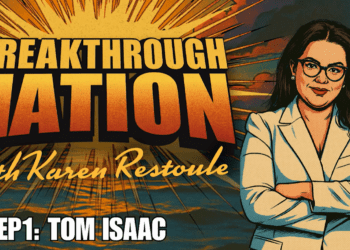Writing in the National Post, MLI Senior Benjamin Perrin calls on the federal government to give those granted protections under its new victims bill a mechanism for making sure their rights are enforced.
Perrin applauds the government for granting rights to victims, whom he believes have for too long sat on the sidelines of the justice system.
But without an enforcement mechanism, writes Perrin, the government risks creating rights that victims have no means of ensuring are enforced.
The op-ed echoes the conclusions of Perrin’s recent MLI commentary on the subject, “More than Words: Enhancing the Proposed Canadian Victims Bill of Rights (C-32)”.
Benjamin Perrin, June 24, 2014
The federal Victims Bill of Rights Act (Bill C-32) has been heralded by the federal government as “historic legislation” that would put victims at the “heart of our judicial system.” While it includes many positive changes, victim advocates are rightly asking how much will really change if it’s adopted.
Every year, almost 1.6-million Canadians are victims of violent crime. But most don’t report it: Only one-third of assaults and a mere fraction of sexual assaults (an estimated 12%) are reported to police, according to Statistics Canada surveys. Among the reasons: Victims don’t believe the police can do anything about it, they have no confidence in the justice system, and they fear publicity or news coverage.
Recent high-profile cases have poignantly shown that a poor response to victims by the justice system can make the initial crime even more devastating. The tragic death of Rehtaeh Parsons in Nova Scotia and numerous cases of missing women in B.C. who were treated as “nobodies,” according to a 2012 inquiry, provide just two recent examples.
Victims are largely unseen and unheard in our justice system. The exceptions are if they’re called as a witness at trial (most cases never make it that far) or provide a victim impact statement at sentencing (which may be censored before ever reaching a judge). In the minority of cases where their voices are heard, studies have found that judges find their involvement to be helpful.
Against this backdrop, victims are asking to come in from the cold. Victims have a legitimate interest in proceedings related to their alleged offenders. While a criminal-law offence technically is considered a “crime against society,” the victim is the member of society who directly suffered because of it, and so shouldn’t be dismissed as irrelevant.
Bill C-32 includes the Canadian Victims Bill of Rights, which recognizes 16 “rights” for victims, including the right to information about conditions of release of the accused/offender, the right to request that the victim’s identity be protected, the right to convey their views about decisions in the criminal justice system that affect their rights and to have those views considered, and the right to have the court consider making a restitution order against the offender.
Where things get murky is the question of how these new rights for victims are to be realized. Bill C-32 proposes a complaint mechanism for federal departments and agencies, which could be valuable for victims. However, the proposed legislation denies victims any ability to petition a court to have their rights respected. Nor does it permit victims the right to observe proceedings. What is given with one hand (new legal rights) is taken with the other (no legal remedy if they’re breached).
There’s no right without a remedy in law. This lack of enforceability is the main problem with the proposed Canadian Victims Bill of Rights, and it needs to be fixed. Last month, Sue O’Sullivan, Federal Ombudsman for Victims of Crime, issued the results of her review of Bill C-32, applauding this proposed legislation but proposing a number of amendments and flagging a lack of enforceability.
It’s a concern reminiscent of an ill-fated victims’ rights project of yesteryear. Almost 20 years ago, Mike Harris’ Ontario government passed a Victims Bill of Rights that recognized a host of “principles” for victims. As with Bill C-32, however, victims could do little or nothing in the courts to ensure the law was actually respected. The result was disappointing for victims.
The Ontario Superior Court of Justice soon heard a case, Vanscoy v. Ontario, wherein it was called on to interpret the new law. In that decision, the court held that Ontario’s Victims Bill of Rights “is a statement of principle and social policy, beguilingly clothed in the language of legislation. It does not establish any statutory rights for the victims of crime.” It would be tragic if the Canadian Victims Bill of Rights were to suffer a similar fate.
Bill C-32 should be amended to enhance the status of victims and remedies available to them. While victims should not be parties to criminal proceedings, they should have a general right to observe them. They should also be able to make their views or concerns known to the court in relation to their rights, as appropriate, and have standing to request that a court give effect to their rights under the Canadian Victims Bill of Rights related to judicial proceedings in that court.
The proposed Canadian Victims Bill of Rights is an important opportunity for victims to meaningfully participate and see justice is done. Victims shouldn’t be an afterthought in our justice system as far too often they are — sometimes tragically. Victims of crime deserve better.
National Post
Benjamin Perrin is a law professor at the University of British Columbia and senior fellow at the Macdonald Laurier Institute for Public Policy, which recently published his commentary “More than Words: Enhancing the Proposed Canadian Victims Bill of Rights (Bill C-32).” He is former special adviser, legal affairs and policy in the Office of the Prime Minister.




